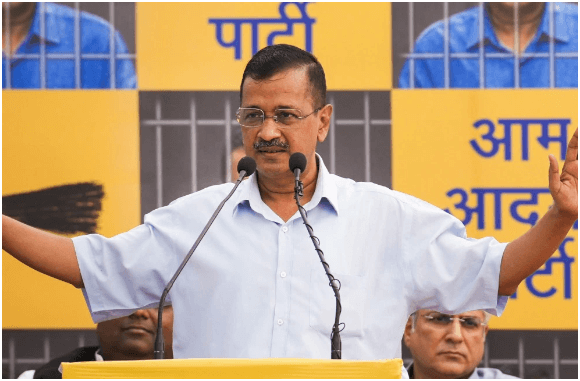Supreme Court of India has recently denied immediate interim bail to Delhi Chief Minister Arvind Kejriwal in a high-profile legal case, marking a significant development in the ongoing legal battle involving the prominent politician.
The Court’s decision came as a response to Kejriwal’s petition seeking temporary relief, while simultaneously issuing a notice to the Central Bureau of Investigation (CBI) to respond to the matter.
Kejriwal’s legal team had approached the Supreme Court requesting interim bail on grounds that would allow him temporary freedom while the substantive issues of the case are considered. However, the Court’s denial of this request underscores the seriousness with which it is approaching the case and the complexities involved. The decision not to grant immediate bail is often an indication that the Court is deliberating over the intricacies of the case and requires further examination before making a determination on bail.
The Supreme Court’s action also reflects its procedural approach to high-profile cases involving prominent public figures. By issuing a notice to the CBI, the Court has ensured that the investigating agency provides its perspective on the matter, which is a standard part of the judicial process in cases where interim relief is sought. This step is crucial in ensuring that all sides of the case are considered before making any interim decisions.
The case involving Kejriwal has attracted considerable attention due to his position as the Chief Minister of Delhi and the implications it holds for his political career and governance. Legal battles involving senior politicians often have wide-ranging consequences, not just for the individuals involved but also for the broader political landscape. The Supreme Court’s involvement in this case highlights the judiciary’s role in addressing such high-profile matters and ensuring that due process is followed.
The CBI, as the central investigative agency, has been tasked with responding to the notice issued by the Supreme Court. The agency’s response will be critical in shaping the Court’s approach to the matter, including considerations around bail and other procedural aspects. The CBI’s role in the case underscores the importance of thorough investigation and adherence to legal protocols in high-stakes cases involving public officials.
As the legal proceedings continue, the focus will be on how the Supreme Court addresses the substantive issues of the case and the potential implications for Kejriwal. The denial of immediate bail does not preclude the possibility of bail being granted at a later stage, depending on the developments in the case and the Court’s final ruling. The issuance of a notice to the CBI indicates that the judicial process is actively engaged in reviewing the case and ensuring a fair and comprehensive examination.
The Supreme Court’s decision reflects its commitment to upholding the rule of law and ensuring that all procedural requirements are met in complex legal matters. By requiring the CBI to provide its response, the Court is ensuring that all relevant information is considered before making further determinations. This approach highlights the judiciary’s role in maintaining the integrity of the legal process and addressing high-profile cases with the necessary diligence.
In conclusion, the Supreme Court’s denial of immediate interim bail to Arvind Kejriwal and the issuance of a notice to the CBI mark important steps in the ongoing legal proceedings. The Court’s decision underscores its commitment to a thorough and fair examination of the case, ensuring that all procedural aspects are addressed before any interim relief is granted. The legal battle involving Kejriwal continues to unfold, with significant implications for both the individual and the broader political context.
Stay informed with the latest updates – click here .

